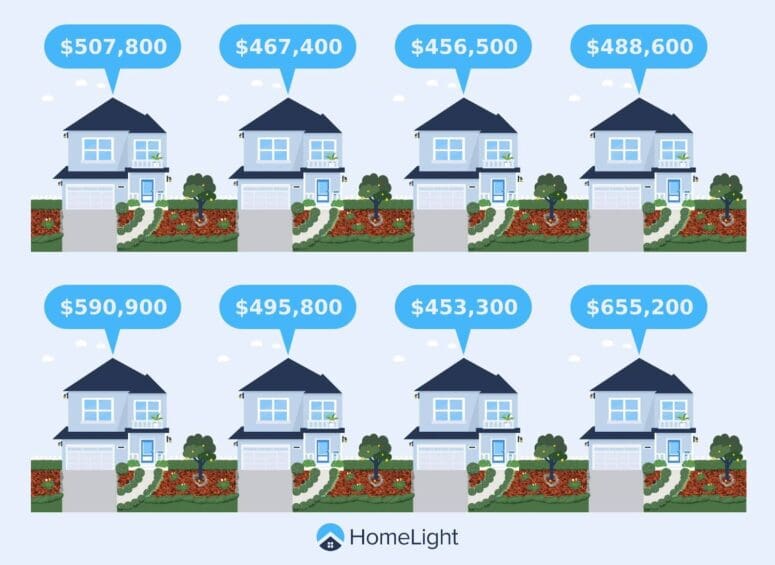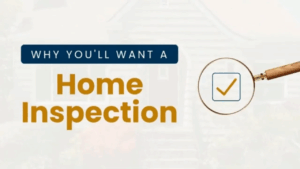Why Do Home Valuation Websites Differ So Much?

Why do home valuation websites differ so much? Learn how online home value estimators work, why they differ, and see a test comparison from 8 top sites.
On average, home values have increased at a rate of about 5% each year over the past decade and as much as 8% annually in the past five years. Curious about your own home, you may have tried online estimators and found yourself asking, “Why do home valuation websites differ so much?”
The accuracy of online home valuation sites can vary — sometimes by tens of thousands of dollars or more (see our test set below). This can be confusing when you’re trying to set realistic expectations for your home sale or financial planning.
So why do these sites differ so much? We’ll show you how free home value estimate tools work, and when and how they are best used.
Online home value estimates can vary — here’s why
Different property valuation websites use different data sources and algorithms, which can lead to big swings in estimated values.
“Valuation websites typically base their [estimates] on public and user-submitted data taken from multiple listing services (MLS), county and tax assessor records, and real estate brokerages,” explains Nick Stoddard, an expert property appraiser based in Kansas City.
Here are a few key reasons why home valuation websites can differ so much:
- Data availability: Some sites pull from public records, others rely on MLS data, and some use both and calculate an average. If your local records are outdated or incomplete, your estimate may be off.
- Errors in the system: Most of the sources that AVMs use are populated with data input by humans. Typos happen, including errors on construction dates, home sizes, purchase prices, and tax assessment amounts.
- Lack of comparables: If you own a unique, isolated, or custom-built home, an online valuation site may not be able to locate suitable nearby comparable properties.
- Update frequency: Home values can change quickly, especially when market winds blow from different directions. Some sites update their data more often than others, which can affect accuracy.
- Valuation models: Each website uses its own formula (or “automated valuation model”) to calculate your home’s value. These models weigh things like square footage, nearby sales, and zip code trends differently.
- Local market nuances: Online tools may not fully account for what’s actually happening on the ground, such as buyer demand in your neighborhood or events that impact local property values, such as a major employer opening up or closing down.
Examples: 8 valuation sites using the same home
To illustrate just how home valuation websites can differ, we tested eight online tools using this same house in the Atlanta area:
- Home size: 2,305 square feet
- Bedrooms: 3
- Bathrooms: 2.5
- Lot size: 0.3-acre
- Location: Dunwoody, Georgia (a suburb of Atlanta)
Here are the results, which we’ve rounded for easy comparisons:
| Online home valuation tool | Estimated value result |
| HomeLight’s Home Value Estimator | $507,800 |
| Zillow Zestimate | $467,400 |
| Redfin Home Value Estimator | $456,500 |
| Realtor.com RealValue Tool | $488,600 |
| RE/MAX Home Value Estimator | $590,900 |
| Bank of America Home Value Estimator | $495,800 |
| Chase Home Value Estimator | $453,300 |
| Eppraisal Home Estimate Tool | $655,200 |
As you can see, the estimated values range from a low of $453,300 to a high of $655,200, a difference of more than $200,000. For a better perspective, the median price estimate from all the sites calculates to $492,200.
This variance demonstrates how home valuation websites can differ and why these tools should be considered a preliminary or ballpark estimate — and not a substitute for a professional home appraisal.
Stoddard points out that online valuation websites rely heavily on surface-level data. “Like square footage, number of rooms, and the value of similar (nearby) homes.”
This can be a good starting point, but Stoddard cautions that the algorithms are not able to tell the whole story. “Let’s say you upgrade your basement or replace the carpet with hardwood flooring; home valuation sites don’t factor in those upgrades.”




